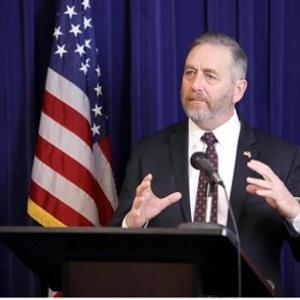
A bill is being introduced in Colorado to end the state’s death penalty and to use the resultant savings to investigate the state’s more than 1,300 unsolved crimes. More than 500 residents who have lost friends and family to unsolved murders are pushing for the bill, which is expected to be introduced by House Majority Leader Paul Weissmann. The proponents estimate that 3 in 10 killers in the state walk free, and catching more killers would be a more effective deterrent than capital punishment and a better use of state funds. Weissman says abolishing capital punishment could save the state $2 million a year and local authorities another $2.5 million. “Any other program that cost that much and was used so little would be the first to go,” said Weissman, whose 2007 version of the bill died narrowly on the House floor. Howard Morton, of Families of Homicide Victims and Missing Persons, said, “Our position is very simple. Why talk about penalties when we haven’t even caught [them]? Let’s do first things first. These murderers are living in our neighborhoods.”
The last execution in Colorado was in 1997, and was the only execution in more than four decades.
(J. Fender, “Bill targets Colorado’s death penalty,” The Denver Post, January 29, 2009). See Recent Legislation, New Voices, and Costs.




